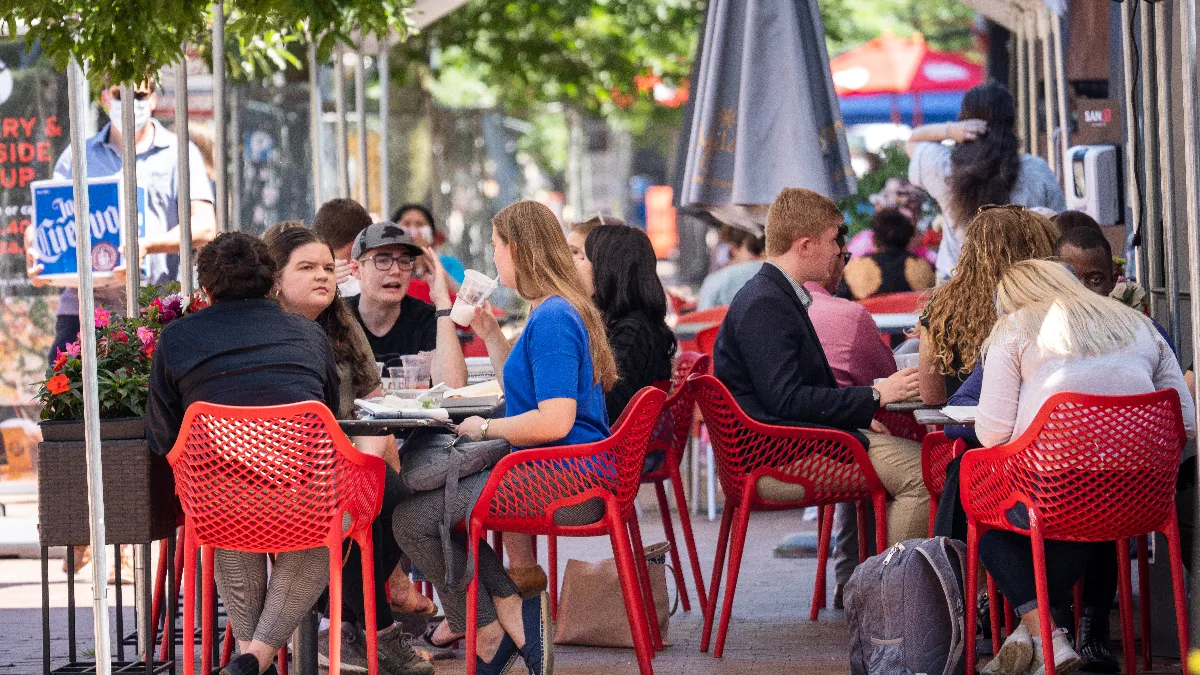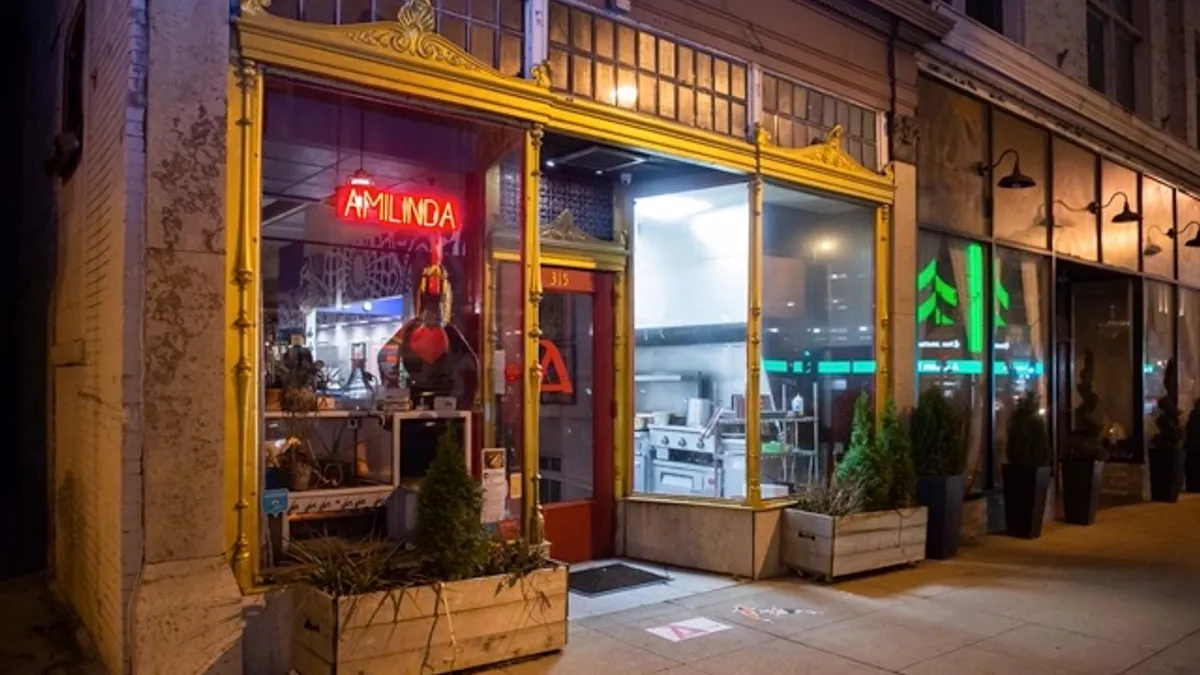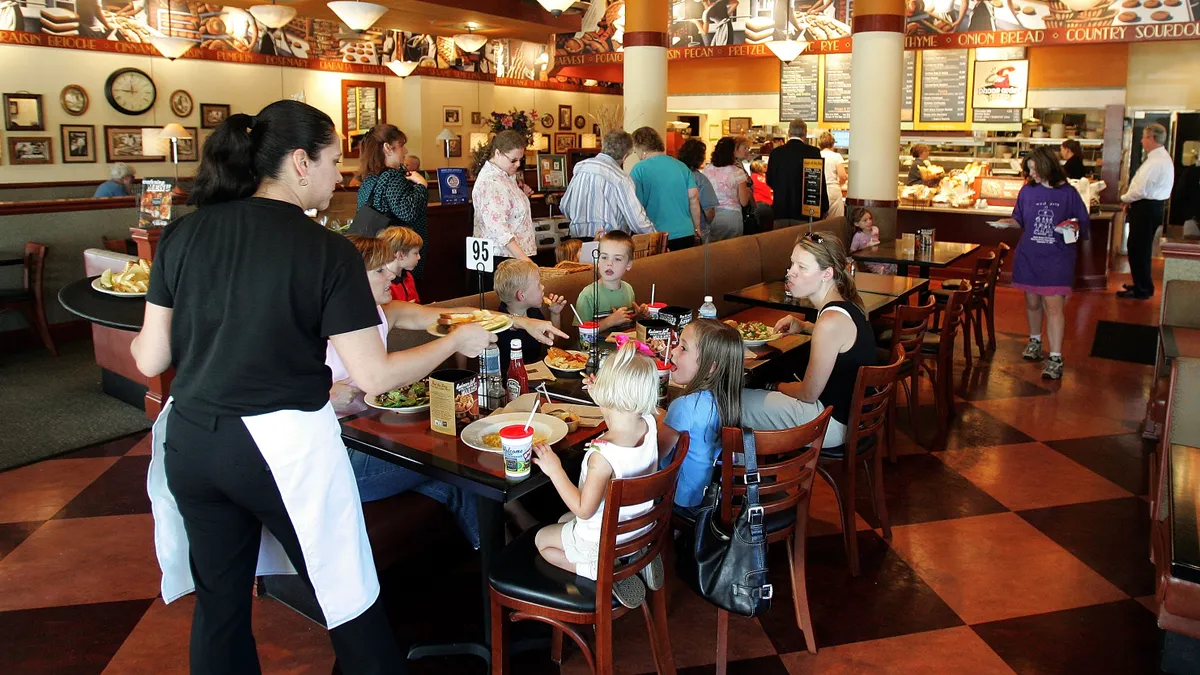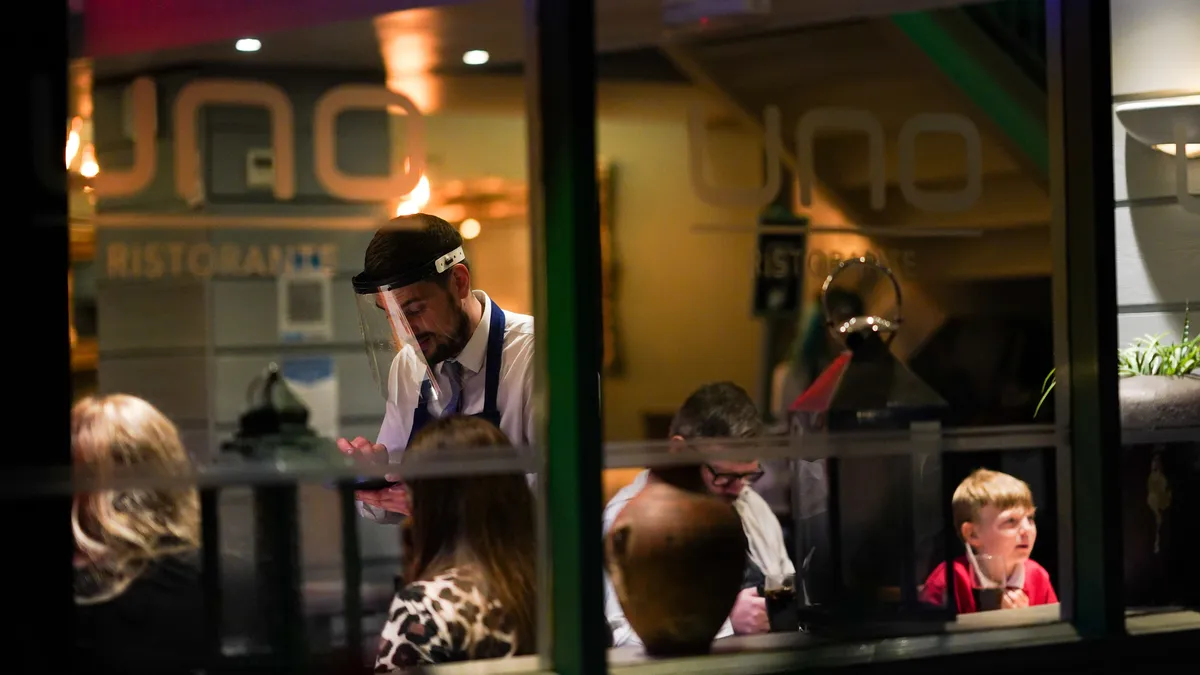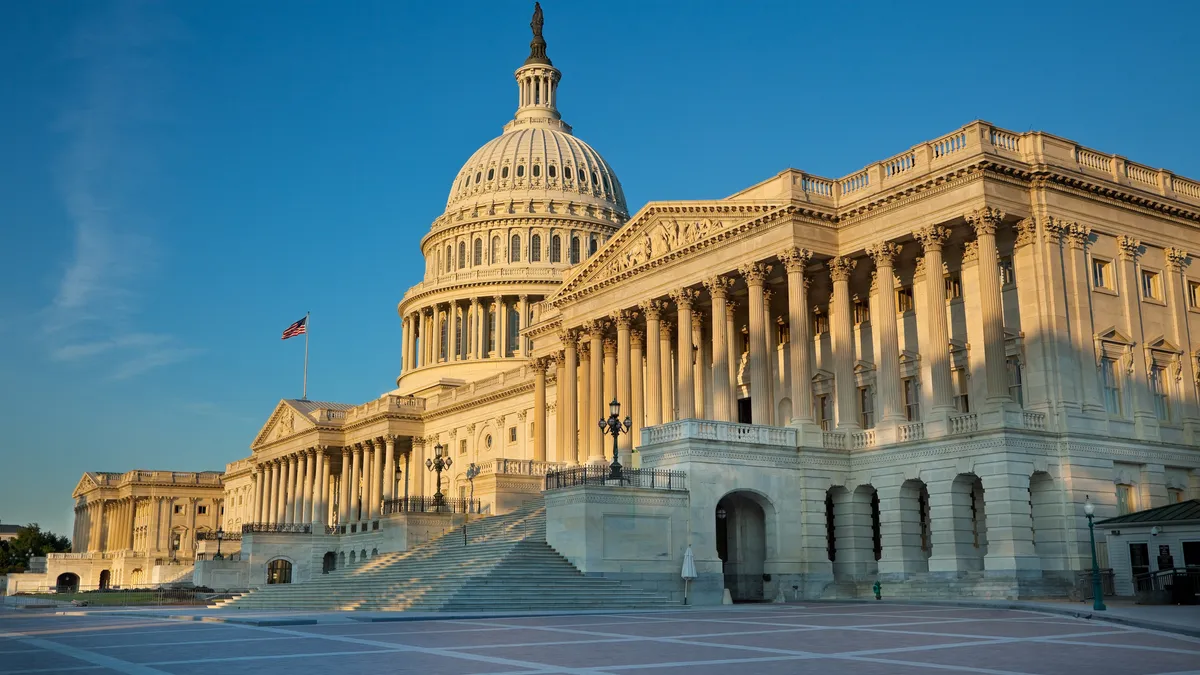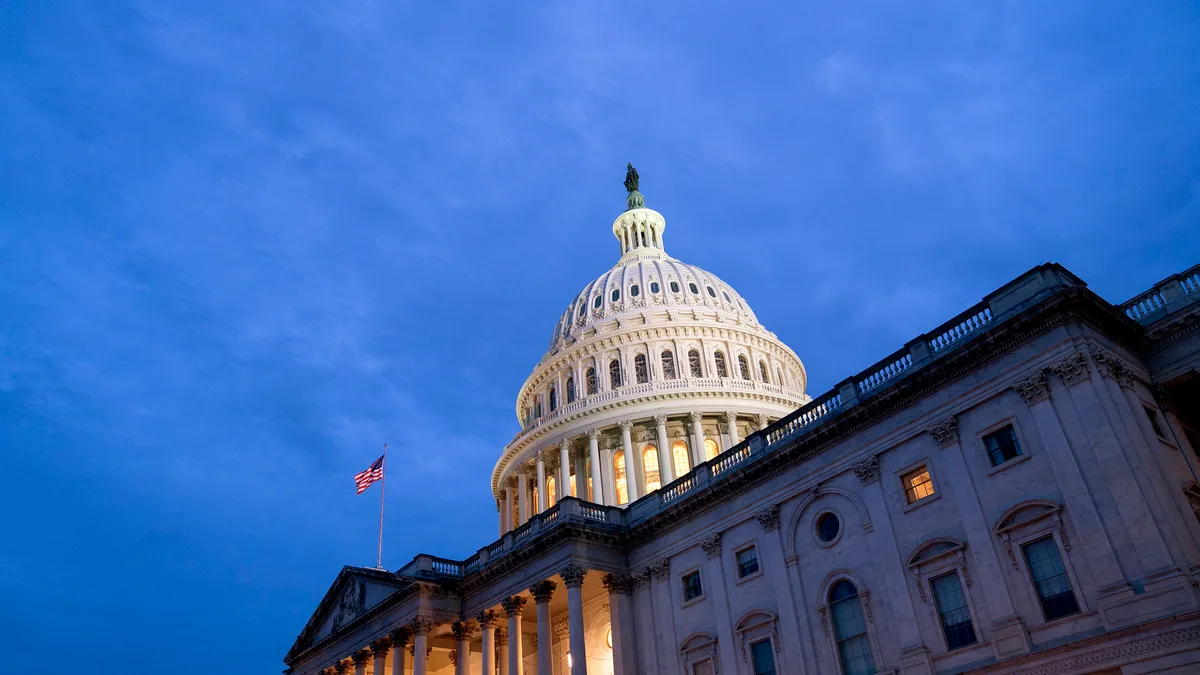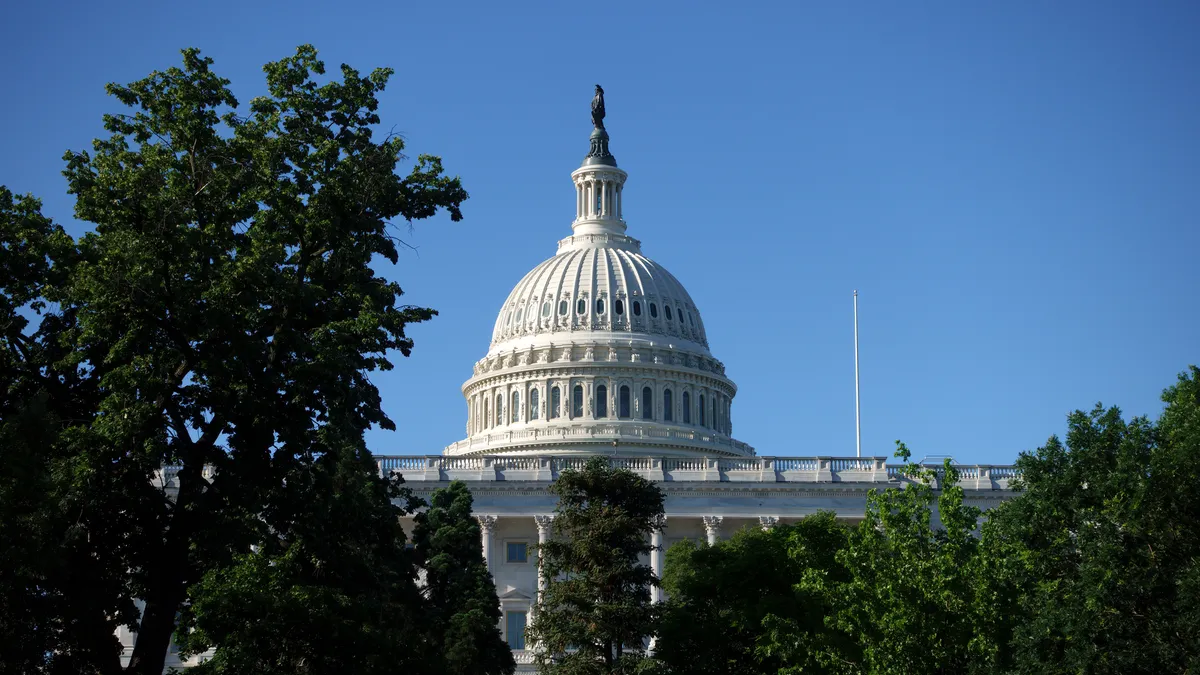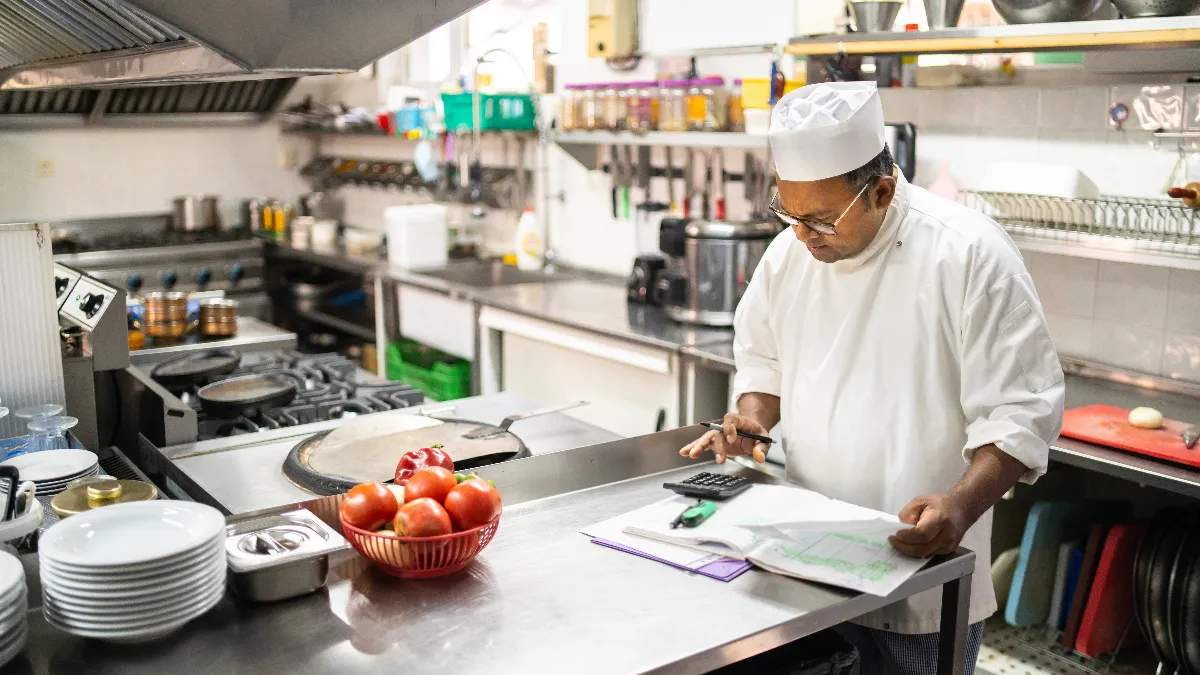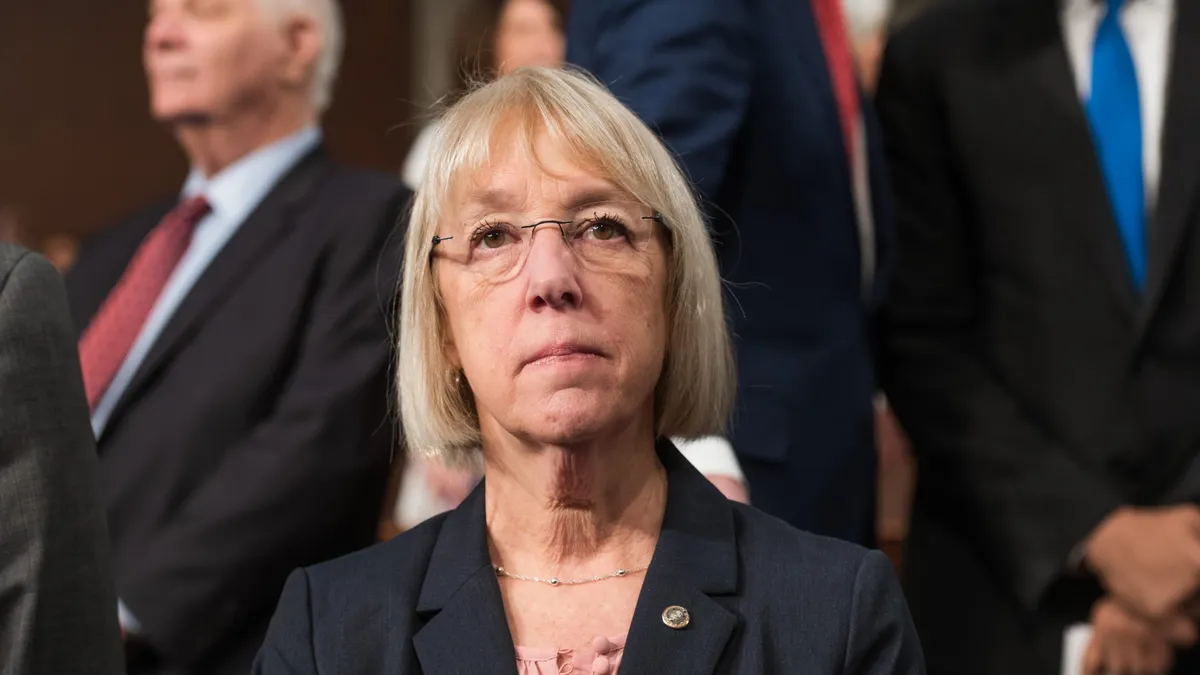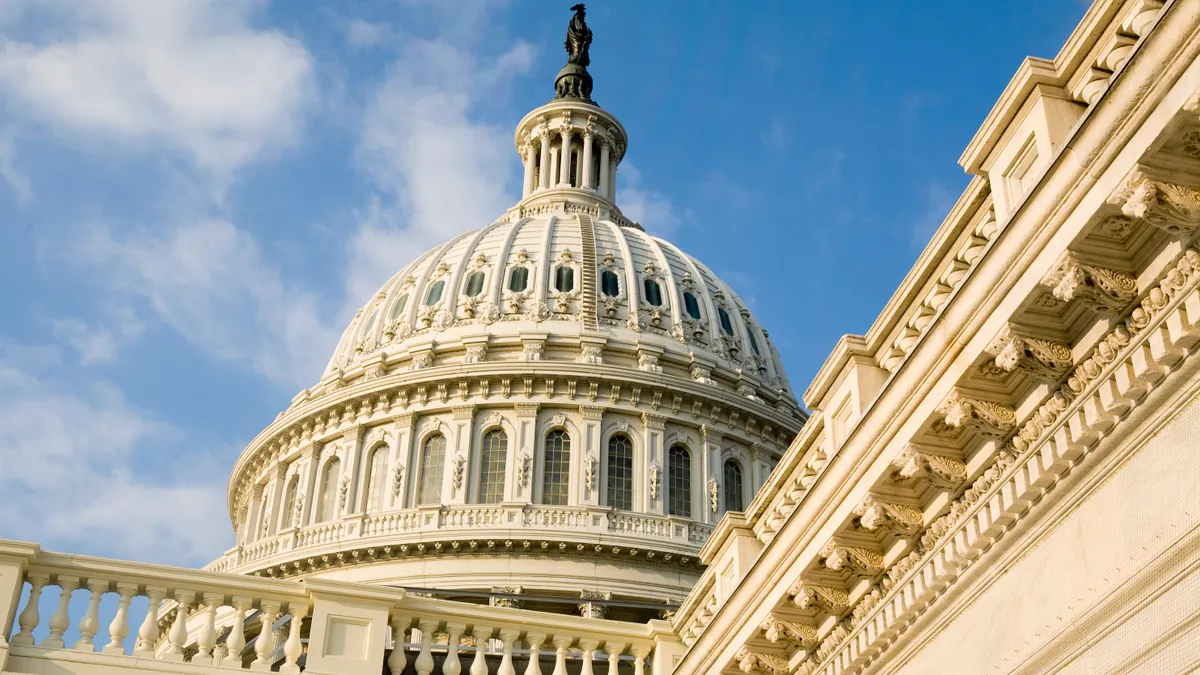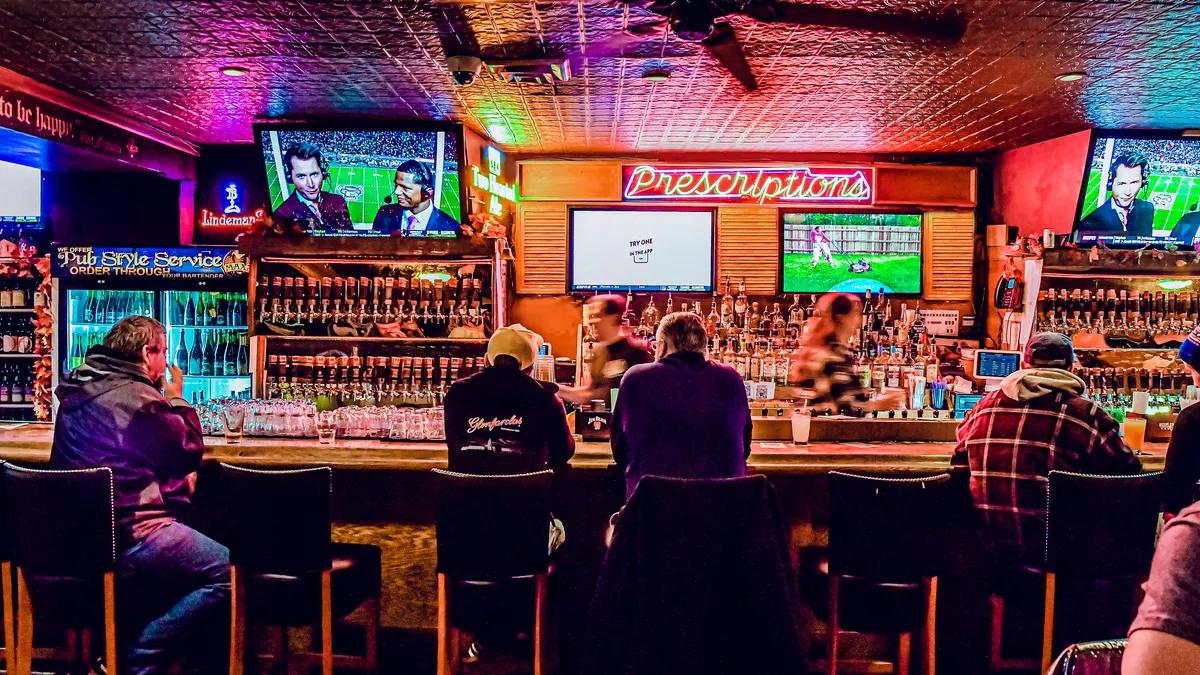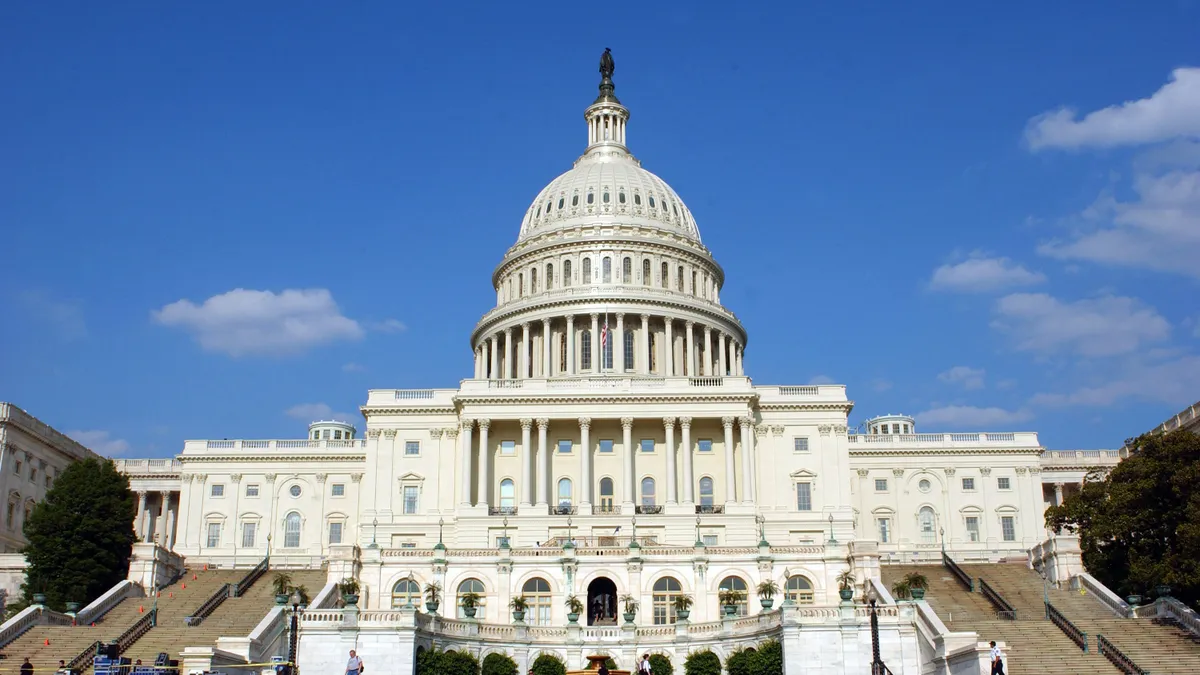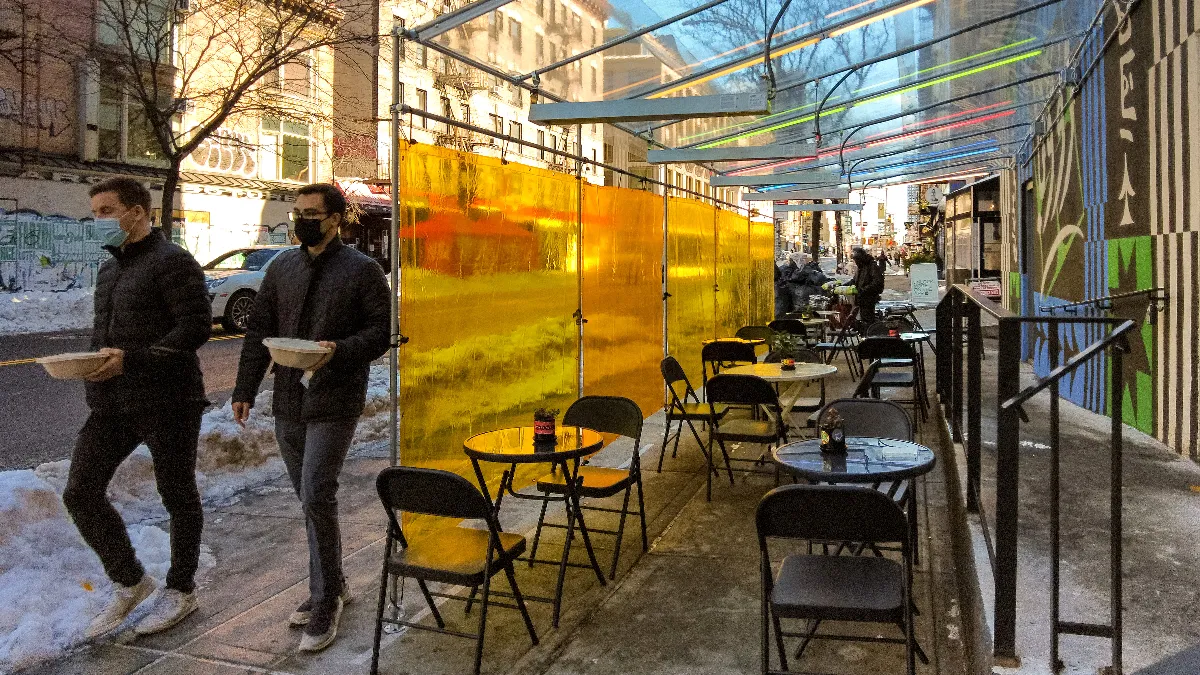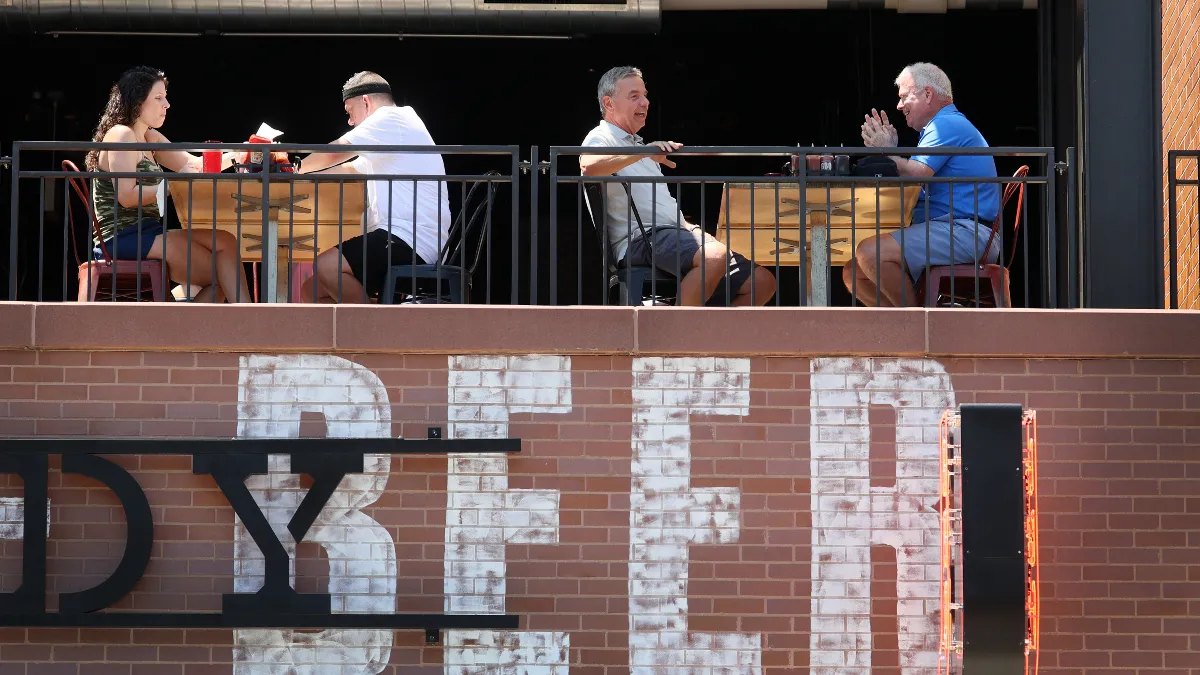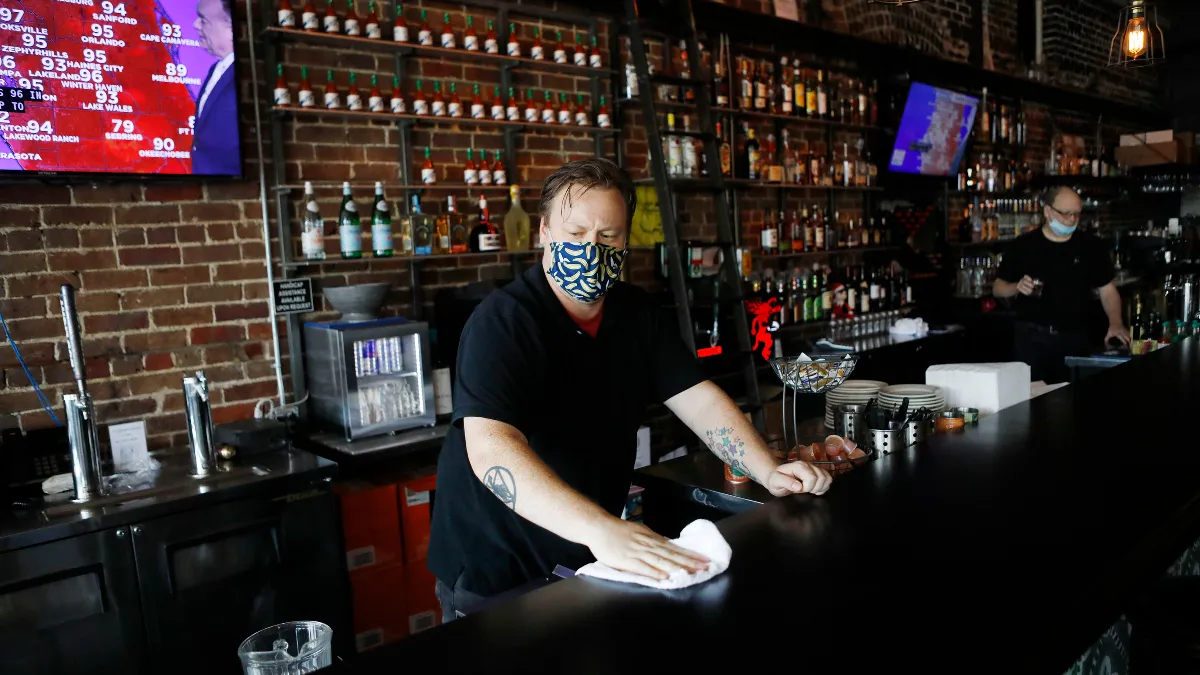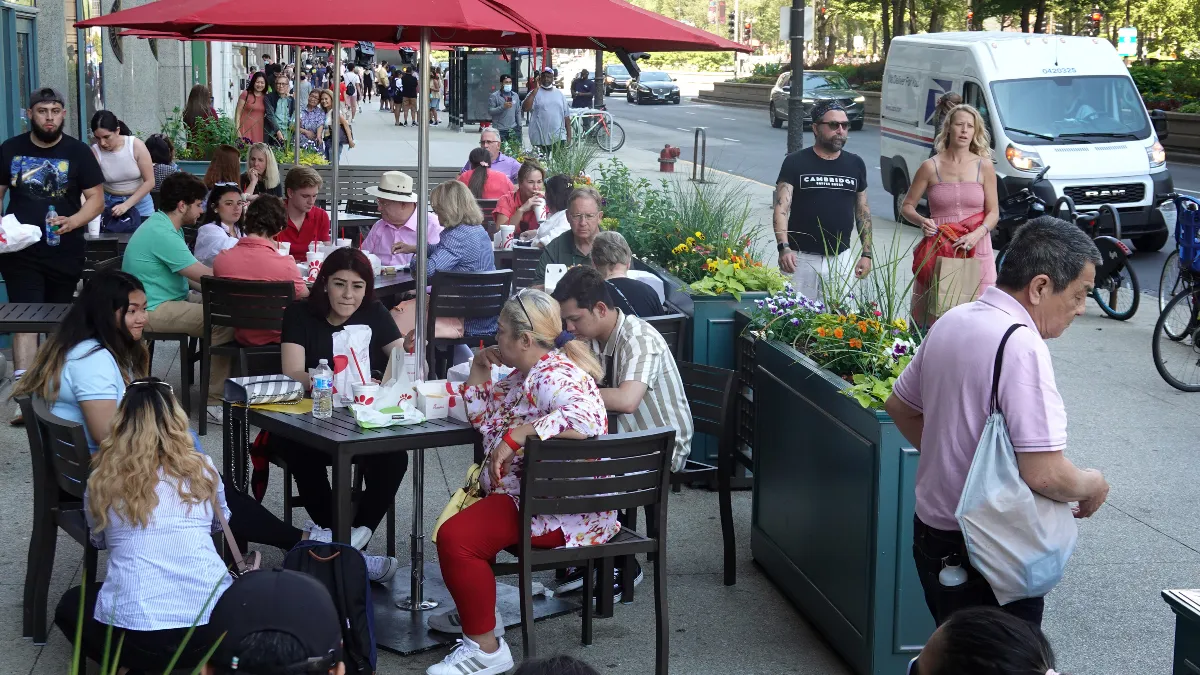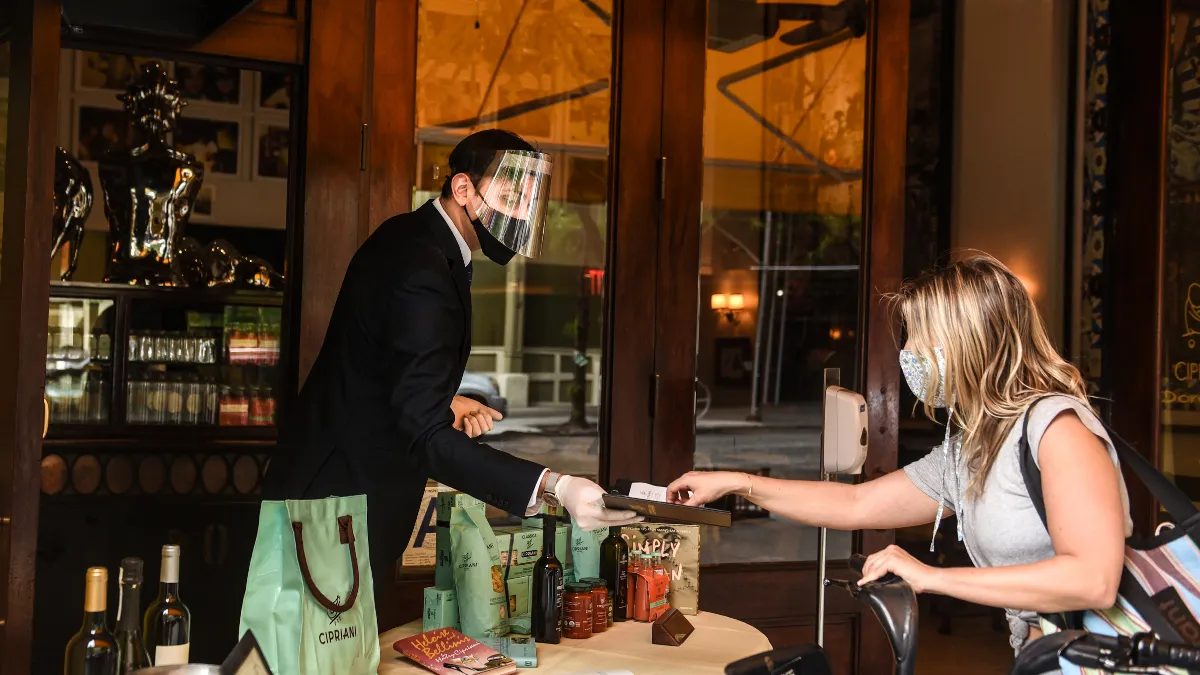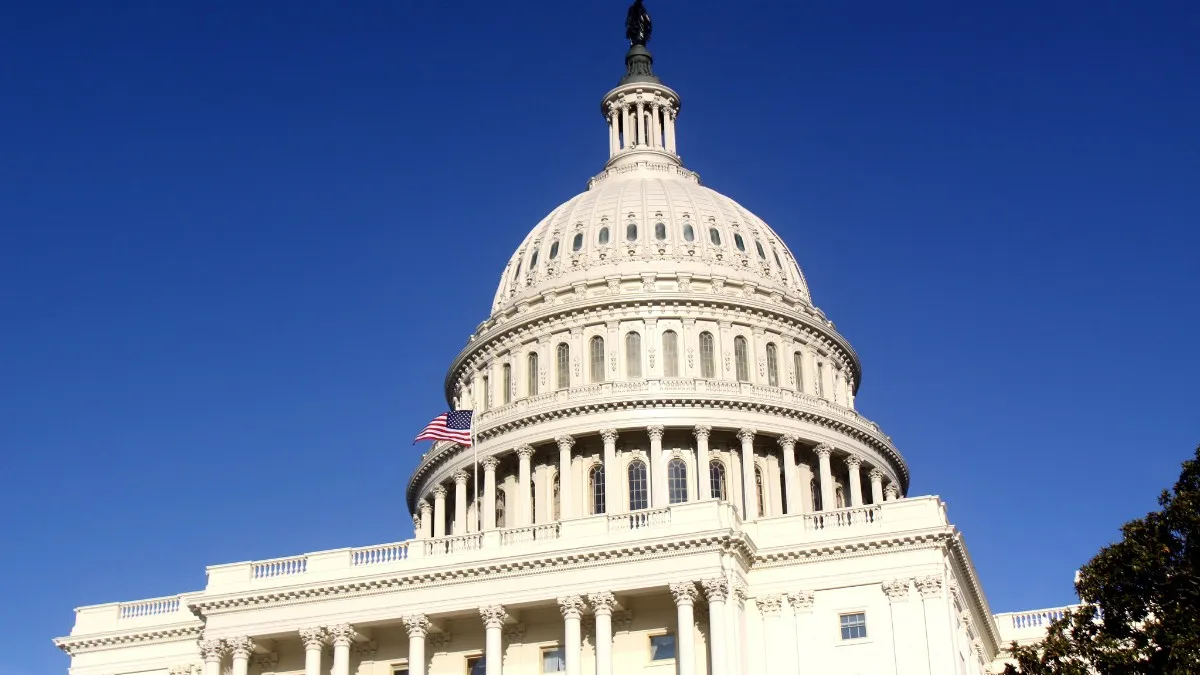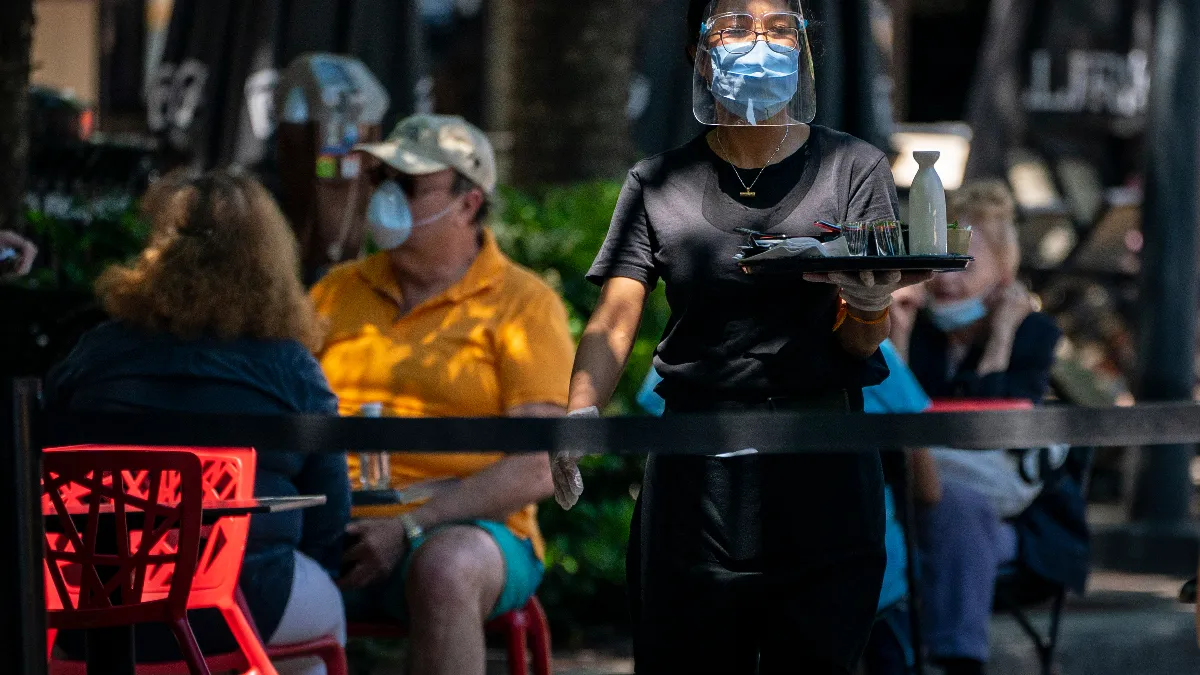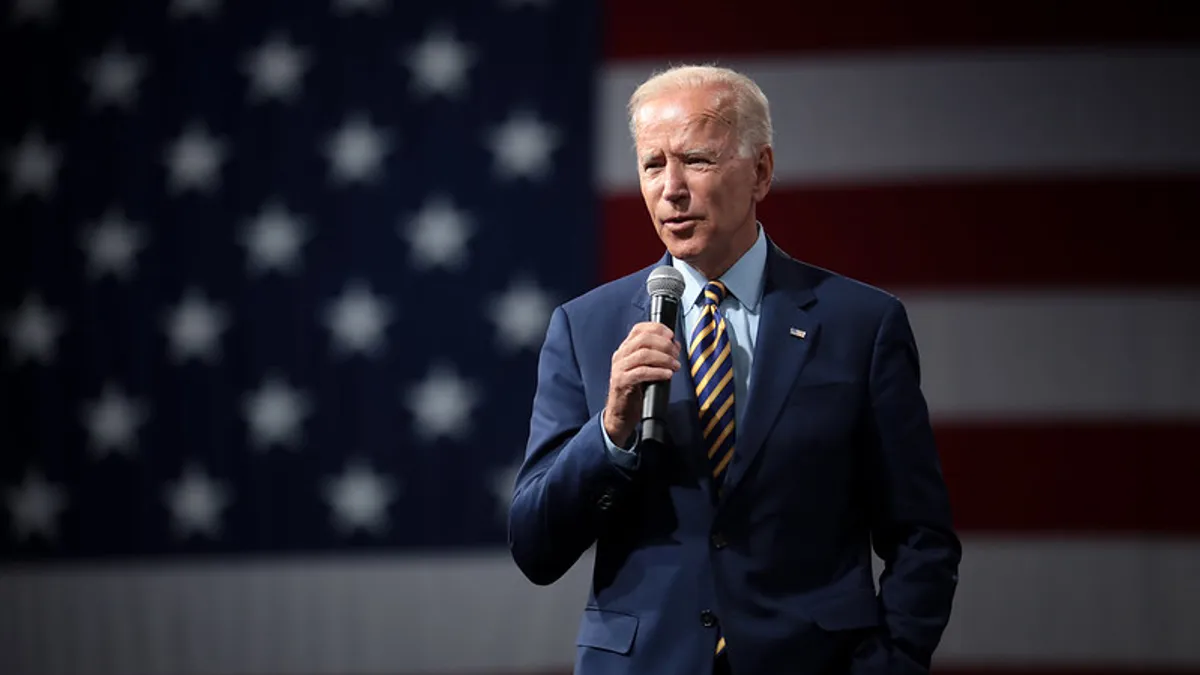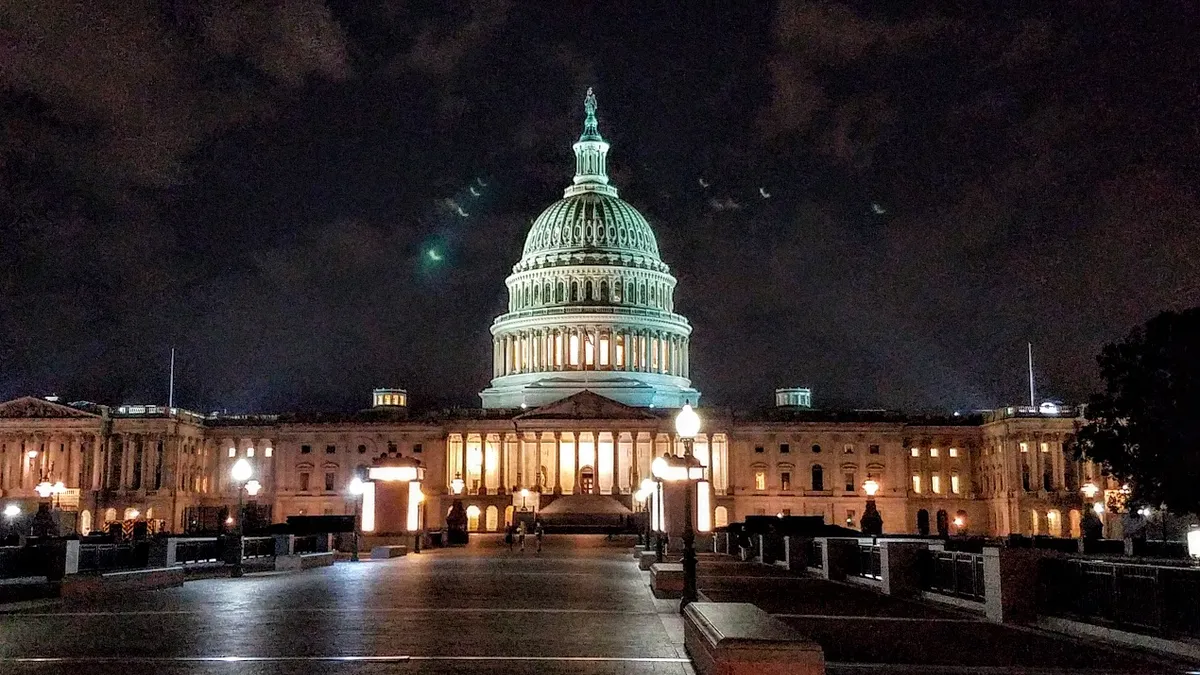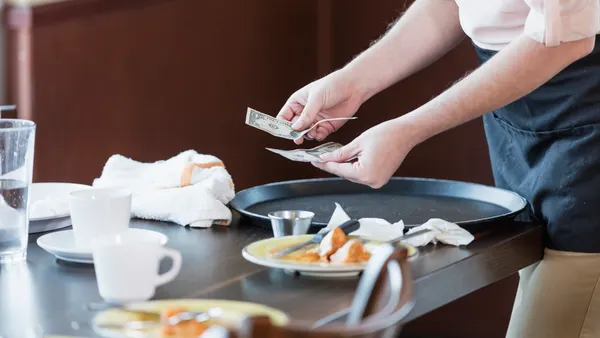UPDATE: June 24, 2020: The National Restaurant Association confirmed Wednesday that the U.S. Small Business Administration has sent more letters to Restaurant Revitalization Fund applicants saying the agency rescinded previously promised grants, the association said in an email to Restaurant Dive. The NRA did not know how many additional recipients received these letters.
"News that the SBA is yet again rescinding pledged grants is a blow to the small business owners who were already planning how the funds could help stabilize their businesses," Sean Kennedy, executive vice president for public affairs at the NRA, said in an emailed statement. "These operators owe rent, they have outstanding invoices, and their payroll is growing. Hundreds of thousands of restaurants are still vulnerable, which is why we continue to work with both houses of Congress to move the Restaurant Revitalization Fund Replenishment Act, so the SBA will have the funds they need to complete this important mission."
Dive Brief:
- The Small Business Administration on Friday revoked Restaurant Revitalization Fund grant approval for almost 3,000 restaurant owners who were prioritized during the fund's first three weeks, during which time only applications from women, veterans and "socially and economically disadvantaged" operators were approved. Restaurant Dive obtained the SBA's emailed statement to these recipients on Reddit.
- The agency revoked these approvals after Texas and Tennessee judges issued injunctions on the disbursement of the funds in response to restaurant lawsuits arguing the RRF's priority period was unconstitutional. In response to the Tennessee judge's injunction on May 27, the SBA said it stopped payments to priority applicants in late May as a result of legal blowback.
- Operators who have had their approvals rescinded will now only receive payment once the SBA "completes processing all previously filed non-priority applications, and only then if the RRF is not first exhausted," the agency said in court filings. Applications are now processed in the order received, without regard to priority status.
Dive Insight:
The SBA's decision to end payments to once-prioritized applicants and change its approval process — all while less than a quarter of its funds remain — has independent restaurants reeling. Operators have taken to Reddit to voice their grievances and share advice, with some urging peers to "stay positive" as they wait for more details from the SBA while others are furious that they have been sent to "the back of the line and said we won't be funded."
RRF has already distributed $27.4 billion of its $28.6 billion allotted funds to roughly 100,000 recipients, an SBA official said in an emailed statement, leaving just $1.2 billion. Small Business Administration Associate Administrator Patrick Kelley said Monday that roughly 72,000 of the applicants who have already been paid were part of the agency's prioritization process, The New York Times reports. These operators were granted $18 billion. RRF closed on May 24, just three weeks after opening.
The SBA hosted a call Monday with the 2,965 operators that were approved for RRF funds but now cannot receive them to show the administration's support during this transition.
"While we cannot comment on the specifics of the litigation, it is the north star of the U.S. Small Business Administration to assist underserved small businesses, and we'll continue to do so. We remain committed to doing everything we can to support disadvantaged businesses in getting the help they need to recover from this historic pandemic and restore livelihoods," SBA Public Affairs Officer Shannon Giles said.
This disruption comes just a few days after sponsors of the Restaurants Act introduced a bill to refill RRF with $60 billion, but there's no telling when a cash infusion to the program would be approved — or how many struggling restaurants could shutter in the meantime while they wait for more federal aid. The SBA said it is pointing operators who have had their RRF application approvals revoked to other programs, including Economic Injury Disaster Loans (EIDL), Targeted Advance EIDL and Supplemental Targeted Advance EIDL programs, in the absence of RRF grants.



